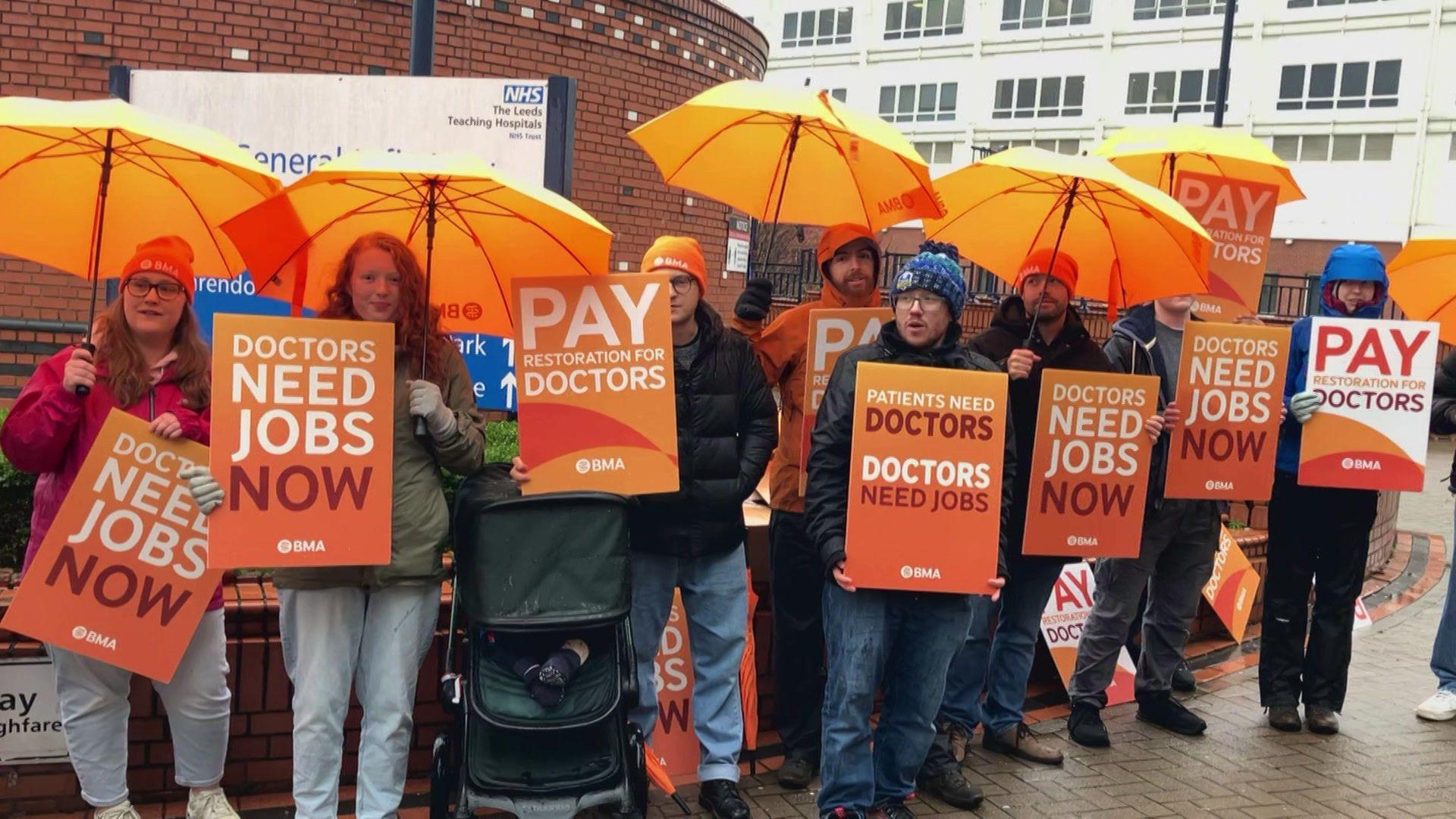Region's doctors defend 13th round of strikes

Doctors have been on the picket line outside hospitals across Yorkshire
- Published
Resident doctors across Yorkshire have begun a five-day walkout in a dispute over pay and a lack of speciality training opportunities.
The move is part of a nationwide strike - the 13th by British Medical Association (BMA) members in their long-running pay dispute – and will last until 07:00 on Wednesday.
Dr Marie Tolan, a resident doctor on the picket line outside Leeds General Infirmary (LGI), said her shifts were often short-staffed despite as many as 16 doctors being turned down for one training position.
Labour Health Secretary Wes Streeting has insisted he will not negotiate on pay after resident doctors had received pay rises totalling nearly 30% in the past three years.
Discussing the issue of pay, Dr Tolan said: "You need doctors to run a healthcare service. Patients need doctors. We need to be appropriately renumerated for the work that we are doing."
The BMA has argued that, despite the pay rises, resident doctors' pay is still a fifth lower than it was in 2008, once inflation was taken into account.
Last week the union rejected a deal that would see out-of-pocket expenses like exam fees and membership fees covered, along with a boost in speciality training places.
Its chairman, Dr Jack Fletcher, said it "does not go far enough".
Speaking ahead of the strikes, Streeting accused the union of "increasingly behaving in cartel-like behaviour" and said the government would not be "held to ranson.
"They threaten the future of the NHS full stop. And I think that is a morally reprehensible position to be in."
Dr Tolan, a specialist in obstetrics and gynecology, said the government was "not giving enough training posts for doctors to be able to get those waiting lists down".
Dr Callum Parr, who was also stood on the picket line outside LGI on Friday morning, claimed some fully qualified doctors were unemployed, with some "on job seekers" as a result of a bottleneck in speciality training.
This year there were more than 30,000 applicants for 10,000 training places.
Dr Stella Chatzieleftheriou, a resident doctor in Sheffield, said newly qualified doctors were "very worried about their lack of job security".
Streeting accuses doctors' union of acting 'like cartel'
- Published1 day ago
Why are resident doctors striking and how much are they paid?
- Published1 day ago
Resident doctors in Scotland begin ballot for strike action
- Published7 hours ago
Discussing the additional strain placed on healthcare services as a result of the strikes, which has resulted in some appointments being cancelled, Dr Chatzieleftheriou said she and her colleagues "had no other options".
"Operations and appointments get cancelled on a fairly regular basis in the NHS," she added.
The NHS has estimated the five-day walkout will cost £240m to cover.
Dr Becky Lavelle, an obstetric registrar who works across East Yorkshire and North Yorkshire, said: "Broadly [the public] are very supportive when they understand how much pay has been eroded and how we are now being put in a position where we don't know where we are going to work and if we are going to have a job in a few months time."
On the wards, doctors were "in a constant position now of just being understaffed, exhausted and burnt out", she added.
"It's not just winter pressures anymore, these are everyday pressures we have to deal with."
Get in touch
Tell us which stories we should cover in Yorkshire
Listen to highlights from North Yorkshire on BBC Sounds, catch up with the latest episode of Look North.